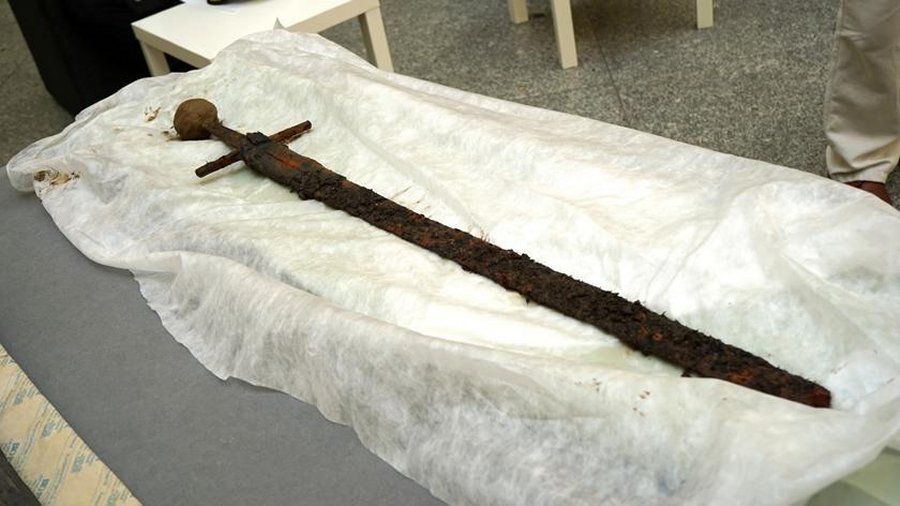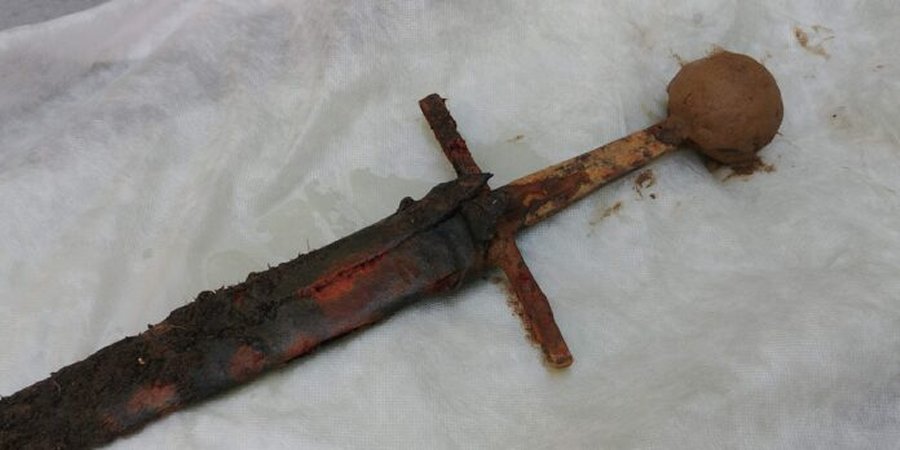Jan Bartek – AncientPages.com – A unique Medieval sword has been found in the Odra River in Poland. It will take some time before scientists can tell more about this valuable discovery, but it is already obvious this is a rare find.
The 108 cm long sword is almost completely preserved, with only a broken tip. It was discovered together with a fragment of leather and wooden scabbard during the dredging of the Świnoujście-Szczecin fairway, in the Western Odra at the Dębina Island.

A Medieval sword found in the Odra River. Credit: Marcin Bielecki
Dr. Anna Bogumiła Kowalska from the Archeology Department of the National Museum in Szczecin explains that the uniqueness of this particular artifact "is that not only the sword has been preserved, but also a fragment of leather and wooden scabbard that has triangular insets. Wooden splints are visible under the leather part.
There are really few such finds. There are separate swords, and separate scabbards, most often in wet environments, in urban layers. However, we are very rarely dealing with a complete set."
Currently, we do not know who the sword belonged too, but preliminary results of the first studies reveal the sword dates from between AD 1170 to 1330.
The sword has a small engraving that may tell us something about its owner once it has been examined.
We also do not know how long the sword has been underwater.
Polish researchers understand how important it is to handle this rare artifact with extreme care. As soon as the Medieval sword was removed from the river, it was transported in appropriate conditions to the National Museum, where it was immediately secured. Strict measures are required when dealing with such sensitive ancient objects. After all, historians do not want to lose any information that may be contained in this sword and scabbard.

Scientists will now study the sword to learn more about its history. Credit: Marcin Bielecki
Although the sword does have a broken tip, the remaining part of the blade, the crossguard, and the handle with the pommel have survived.
See also: More Archaeology News
To learn more about the history of the sword, scientists hope a non-invasive study will determine whether the weapon was lost during conflict or could be a military deposit.
“From deep prehistory, military deposits were votive – perhaps this sword is associated with such a story. If it really turned out that it was a deposit, it would be the most eastern of those we know today,” Kowalska points out.
An interdisciplinary team of specialists has already been asked to examine the sword found in the Odra River, and with any luck, we may soon learn more about this interesting artifact and its currently unknown history.
Written by Jan Bartek - AncientPages.com Staff Writer






